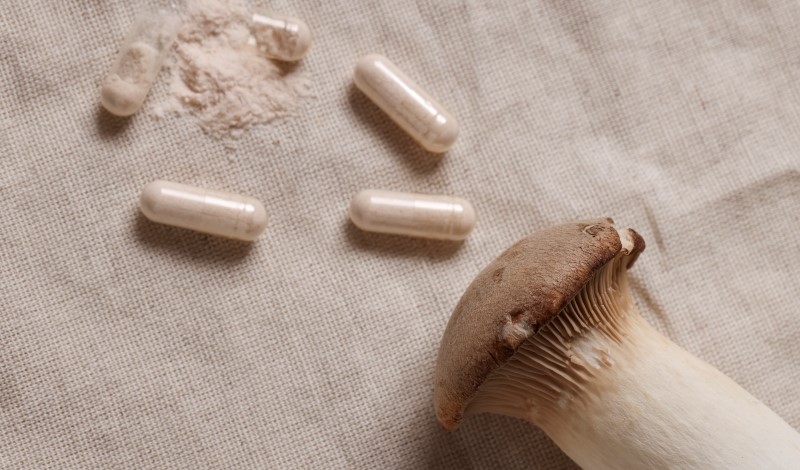
Australia implements a new framework for regulating the medicinal use of psychedelic substances such as MDMA and psilocybin.
For decades, the use of psychedelic substances for medical purposes in Australia has been restricted due to their classification as prohibited substances under Schedule 9 of the Australian Standard for the Uniform Scheduling of Medicines and Poisons. This classification effectively banned the use of these compounds outside of highly controlled research settings.
Emerging evidence from research around the world, however, has suggested potential therapeutic benefits of psychedelics when used in controlled clinical settings, particularly for treatment-resistant mental health conditions such as depression, post-traumatic stress disorder (PTSD), and anxiety associated with life-threatening illnesses.
In light of this growing body of evidence, and in response to a public submission requesting that MDMA and psilocybin be reclassified to allow medical use, the Therapeutic Goods Administration (TGA), Australia’s regulatory agency for medicines and other health products, undertook a public submission and consultation process in 2022.
In early 2023, the TGA announced that MDMA and psilocybin would be reclassified from Schedule 9 Prohibited Substances to Schedule 8 Controlled Drugs, and they would be legally accessible in specific therapeutic contexts under the Authorized Prescriber Scheme. This scheme provides a pathway for clinicians to prescribe unregistered drugs—or other therapeutic goods that are not included in the Australian Register of Therapeutic Goods—in circumstances where patients have a clinically suitable condition that has not responded to conventional treatments.
These new regulations took effect on July 1, 2023 and now enable psychiatrists to apply for approval to prescribe MDMA for the treatment of PTSD and psilocybin for treatment-resistant depression.
In the new regulations, the TGA also specified additional restrictive conditions to ensure patient safety and the integrity of the treatment process. For example, the prescribing psychiatrist must have experience relevant to the specific condition and the clinical use of psychedelic therapies, must use an evidence-based treatment protocol reflecting those used in contemporary clinical research settings, and must obtain approval of the treatment protocol from a registered human research ethics committee—a committee that “reviews proposals involving human participants to ensure that they are ethically acceptable.”
Once receiving approval, the psychiatrist may prescribe MDMA or psilocybin to an unlimited number of patients fitting the specified criteria and using the approved protocol.
These changes mark a pivotal shift in enabling the legal treatment of patients with conditions that may benefit from psilocybin or MDMA-assisted psychotherapy outside of a research context. But these new regulations are narrowly tailored, do not extend to other patient groups or allow for off-label prescribing, and restrict administration to supervised clinical settings, thereby eliminating the possibility of dispensing for home use.
Outside of these specific therapeutic uses, the general status of MDMA and psilocybin remains unchanged—they continue to be classified as Schedule 9 Prohibited Substances.
Since commencement of this new regulatory system, the clinical uptake of these substances has been relatively slow, and a range of barriers are likely to prevent large scale rapid adoption. These barriers include a lack of suitably qualified clinical staff, as required under the TGA guidelines, a lack of standardized and accredited training programs and guidelines, the need to create specialized clinical treatment spaces, and the high cost of treatment—estimated at US$15,000–$23,500 for a standard three-session treatment. Such treatments are not currently reimbursed via public or private health insurance.
Australia’s reforms mark a significant regulatory change globally because they are the first instance of national regulatory down-scheduling of psychedelic substances to enable medical access.
A number of other countries, however, have already implemented alternative medical access pathways, albeit without formal reclassification of psychedelic substances. For instance, Canada created the Special Access Program in 2022, which grants individual treatment permits to treatment-resistant patients under certain circumstances. Most notably, Switzerland introduced an exceptional permits pathway in 2014, which now enables access to psychedelic therapies for several hundred treatment-resistant patients per year.
Unlike the Australian framework, neither Canada nor Switzerland place restrictions on patient conditions, nor are ethics approvals required for the treatment protocols. Individual treatment permits, however, are mandatory.
The Australian approach reflects a cautious and measured response to the potential therapeutic benefits of these substances, balancing the need to explore innovative mental health treatments with the necessity of maintaining rigorous safety and public health oversight. For patients, the changes enable access to a new treatment option for PTSD and depression when they have not responded to conventional therapies—potentially improving their overall quality of life and well-being.
This essay is part of a six-part series entitled, Global Perspectives on Psychedelics Regulation.




